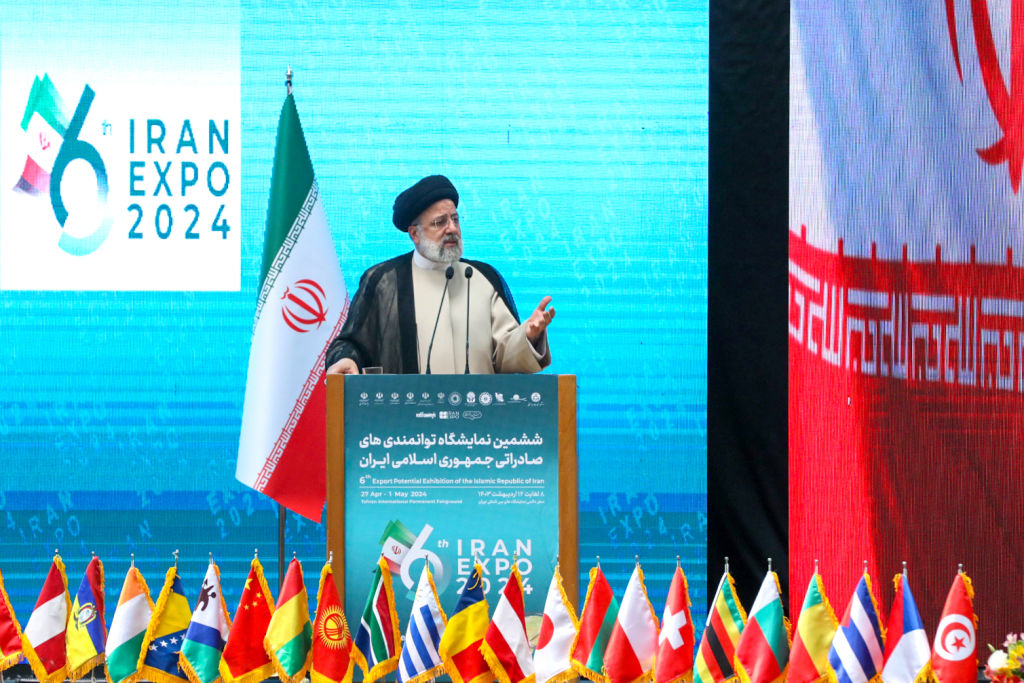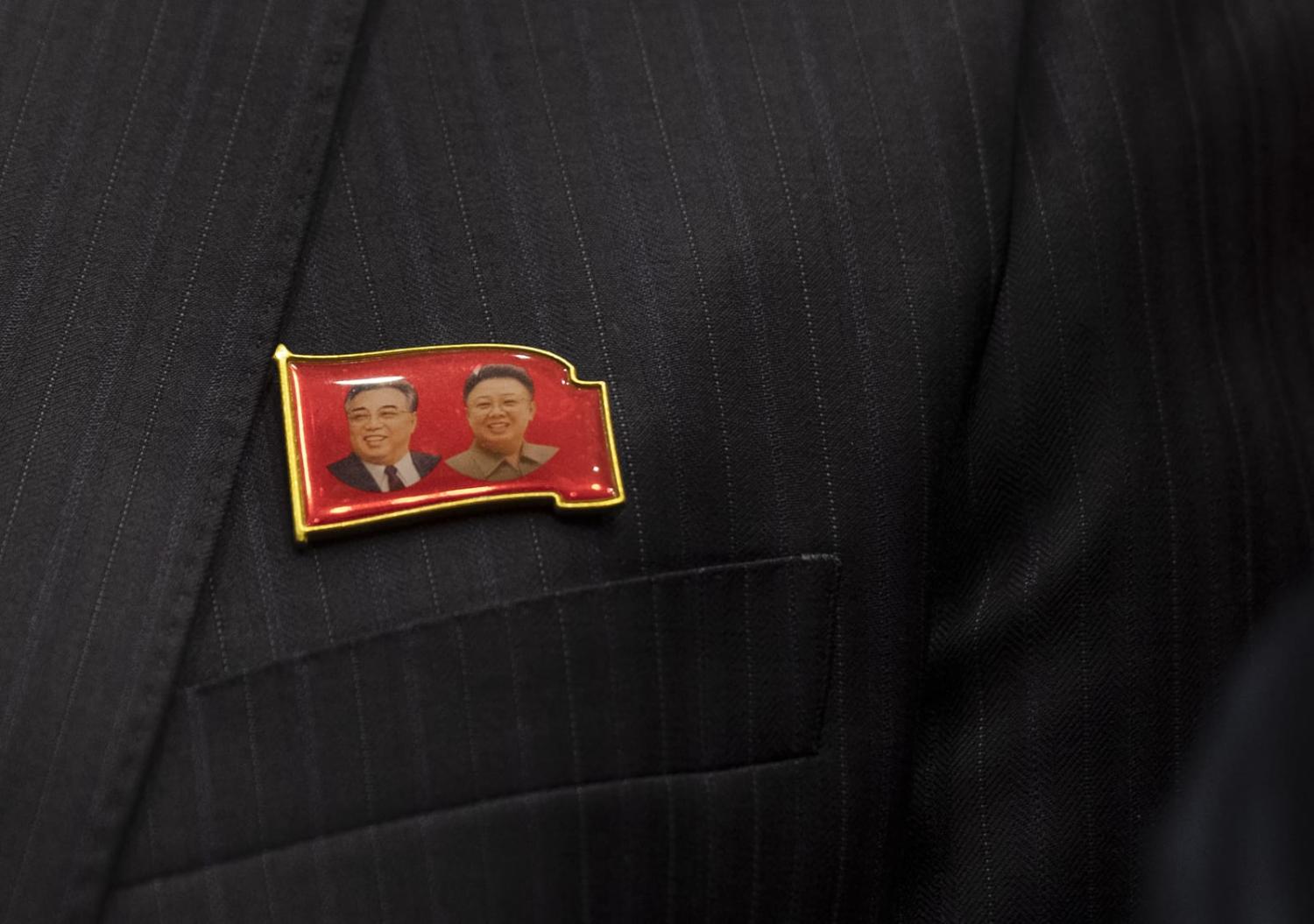Following months of strengthening its relationship with Russia, North Korea is expanding its horizons, by sending a diplomatic delegation to Tehran to explore potential avenues for collaboration. Given the alleged military assistance Iran and North Korea are providing to bolster Russia’s war effort in Ukraine, burgeoning ties between Pyongyang and Tehran could serve to cement this emerging three-way axis. Moreover, with Iran and Israel clashing aggressively and North Korea capable of escalating its military provocations on the Korean Peninsula at any time, deepening North Korea-Iran ties are likely to have multiple undesired outcomes.
The delegation led by North Korea’s Minister of External Economic Relations Yun Jong-ho left for Iran on 23 April, less than a month after his visit to Russia. Ever since establishing diplomatic ties in 1973, North Korea and Iran have cooperated, with a particularly noteworthy period being North Korea’s arms transfers to Iran during its 1980–88 war with Iraq. In subsequent years, the two partners continued to cooperate in the military sphere, including in the nuclear field.
Bound by their deep animosity towards the United States and their status as targets of harsh international sanctions, Iran and North Korea share much in common. In recent years, relations between the two countries saw a boost in 2018 when the United States reimposed sanctions against Tehran after Donald Trump abandoned the Iran nuclear deal. Just three months later, North Korean Foreign Minister Ri Yong-o visited Tehran, where the two sides discussed negotiation strategies targeting Washington and how to deal with US sanctions.
Bilateral talks continued the following year and again in Iran in September 2020, where North Korea’s ambassador to Iran Han Sung-o stressed the importance of solidarity between the two countries in the face of US pressure and called for the development of economic, trade, and cultural cooperation. Notably, Han also suggested that cooperation with third countries was also on the table. This means that the expansion of this partnership toward trilateral cooperation with Russia could very well be on the cards.
Since then, Kim Jong-un has maintained regular communication with the Iranian leadership, with North Korean media also expressing support for Iran amid the ongoing conflict in the Middle East. For example, one article published last December in the state-run Rodong Sinmun newspaper strongly condemned Israel’s acts of “terrorism” against Iran, while blaming the US for supporting Israel’s position and perpetuating the conflict.

According to South Korea’s National Intelligence Service (NIS), North Korean weapons have been used by Hamas in its war with Israel. Israel’s Ambassador to South Korea Akiva Tor also stated that Hamas used North Korean-made weapons to attack Israel, saying “It could be that these North Korean weapons have been in Iran for quite a long time.” The NIS is also currently investigating whether North Korean weapons technology was used in the ballistic missiles that Iran launched against Israel earlier this month.
Besides this, North Korea has also been accused of supplying Russia with munitions for its war in Ukraine while Iran is also reportedly providing support in the form of artillery shells, drones, munitions, and even ballistic missiles. For its part, Russia has also rapidly deepened multi-front cooperation with North Korea in recent months while maintaining close ties with Iran.
With Pyongyang, Tehran, and Moscow all facing sustained US pressure, there is the real possibility of this trilateral partnership cementing and bringing with it greater global instability. For instance, Iran could learn more than a thing or two from North Korea regarding the development of a nuclear weapons program under the pressure of international sanctions. This, paired with its capability of attacking Israel, also strengthens Tehran’s diplomatic leverage over Washington.
These combined dangers represent a nightmare scenario for the United States, which has long warned of cooperation between these powers. US State Department spokesperson Matthew Miller said this month that the US was “incredibly concerned” about Iran working with North Korea to pursue nuclear weapons and ballistic missiles.
North Korea is also likely to benefit from close ties with Iran. First, it could give North Korea another source of military technology beyond just Russia. Second, increasing trade and other forms of economic cooperation with Iran could also provide North Korea's regime with much-needed foreign currency.
But the true worst-case scenario for the United States would be the materialisation of a North Korea-Iran-Russia military partnership resulting in security threats that span Europe, the Middle East, Asia, and beyond. While the US-South Korea-Japan partnership has been mainly focused on countering China’s rise and the threat coming from North Korea, the addition of two major players such as Iran and Russia to the mix would greatly impact regional and global stability.
As the past few decades have shown, continued pressure in the form of sanctions or international isolation is not a strategy likely to bring about positive results. As such, Washington must double down on reviving diplomatic efforts with both Pyongyang and Tehran to advance non-proliferation and arms control goals, prevent the two from engaging in closer cooperation with Moscow, and avert the escalation of conflict in the Middle East. Only through sustained diplomacy can tensions be peacefully deescalated and further conflict prevented.

